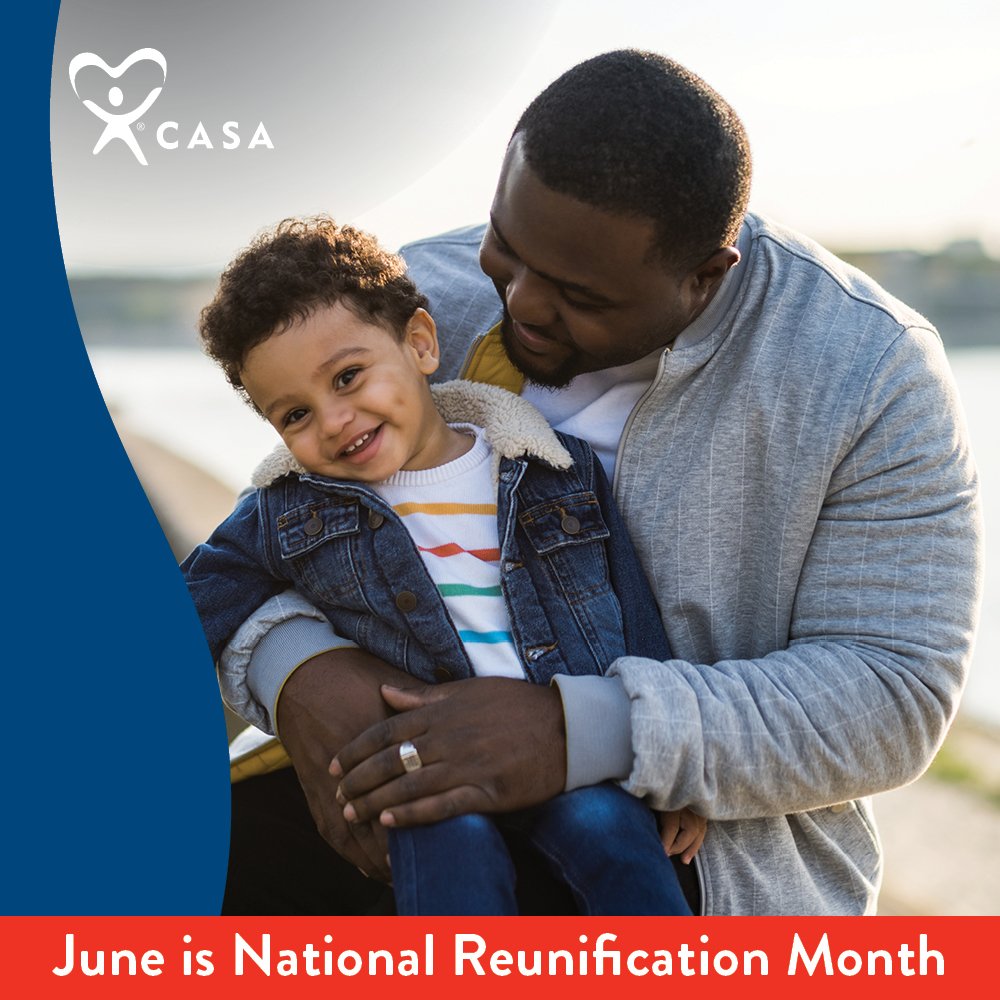June is National Reunification Month
June is National Reunification Month, when we raise awareness and celebrate and recognize those who help families stay together. We know that the vast majority of parents love their children, and the parents of the children we serve in foster care are no exception. That’s why CASA’s top priority is to support families towards reunification, whenever safe and possible.This June we also celebrate the families who have overcome obstacles to providing a safe and loving home for their children and are able to reunify after their child was placed in the child welfare system. It is important for our work as CASAs that there is a focus on supporting families with community resources to reduce the number of interactions with the child welfare system. In 2020, 42% of CASA case closures were the result of reunification with parents or primary caretakers or children and youth remaining with parents throughout the life of the case.Each year the American Bar Association highlights parents, professionals, and youth "reunification heroes" who demonstrate the compassion and perseverance to keep families together. Learn more about their stories here.Legal Services of New Jersey’s Reunified Foster Youth Program have shared reunification stories with the American Bar Association (ABA). Each story and circumstance is different—but they all share a focus on the unique, powerful, and healing bond of family. Read their stories here.


